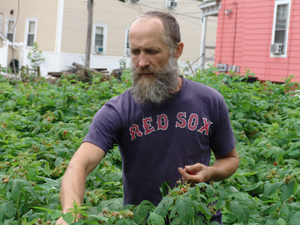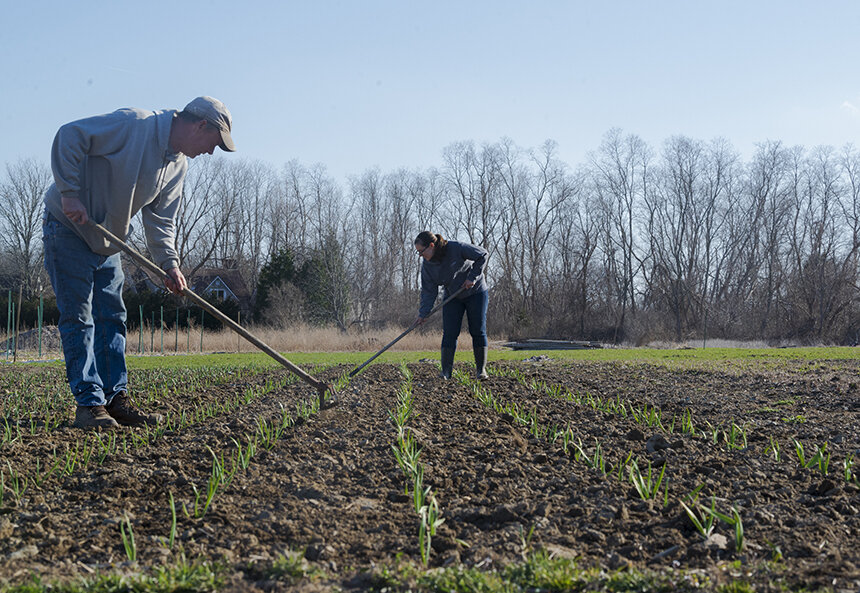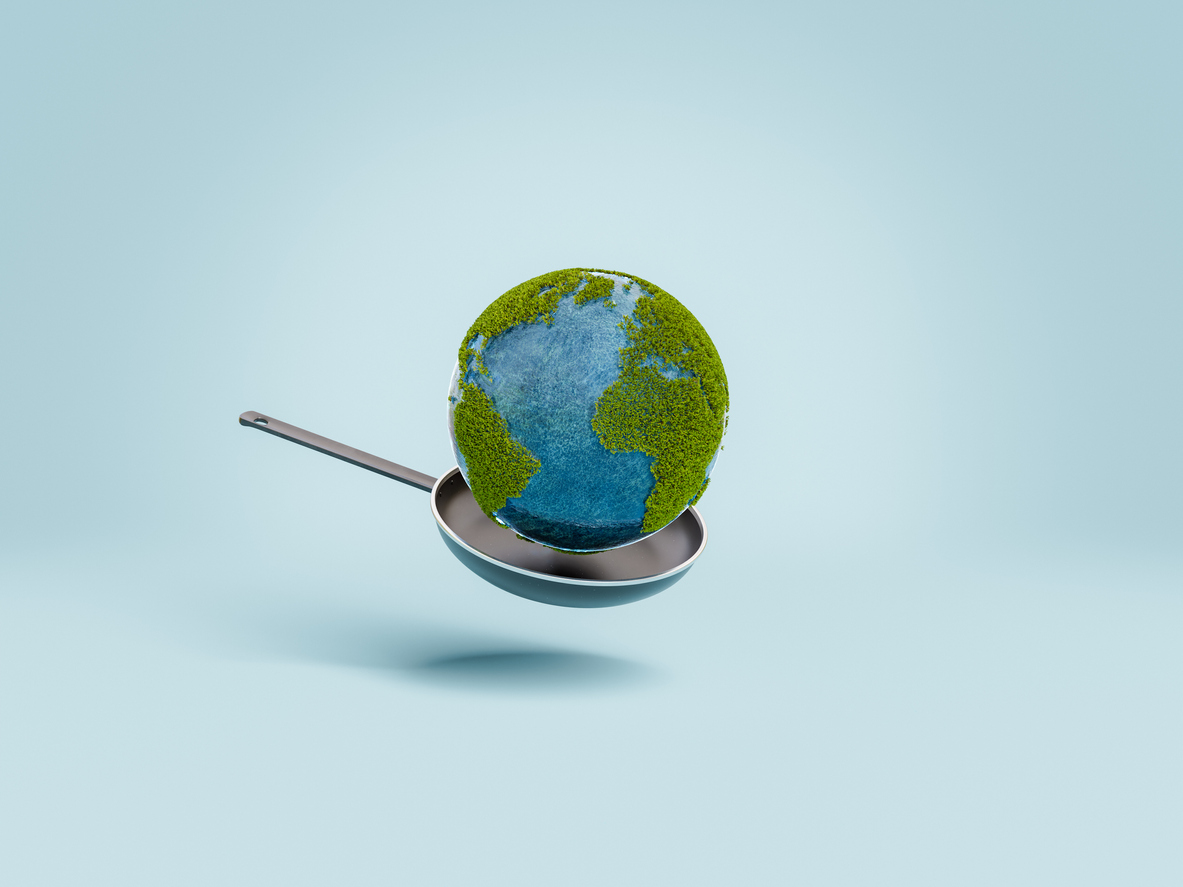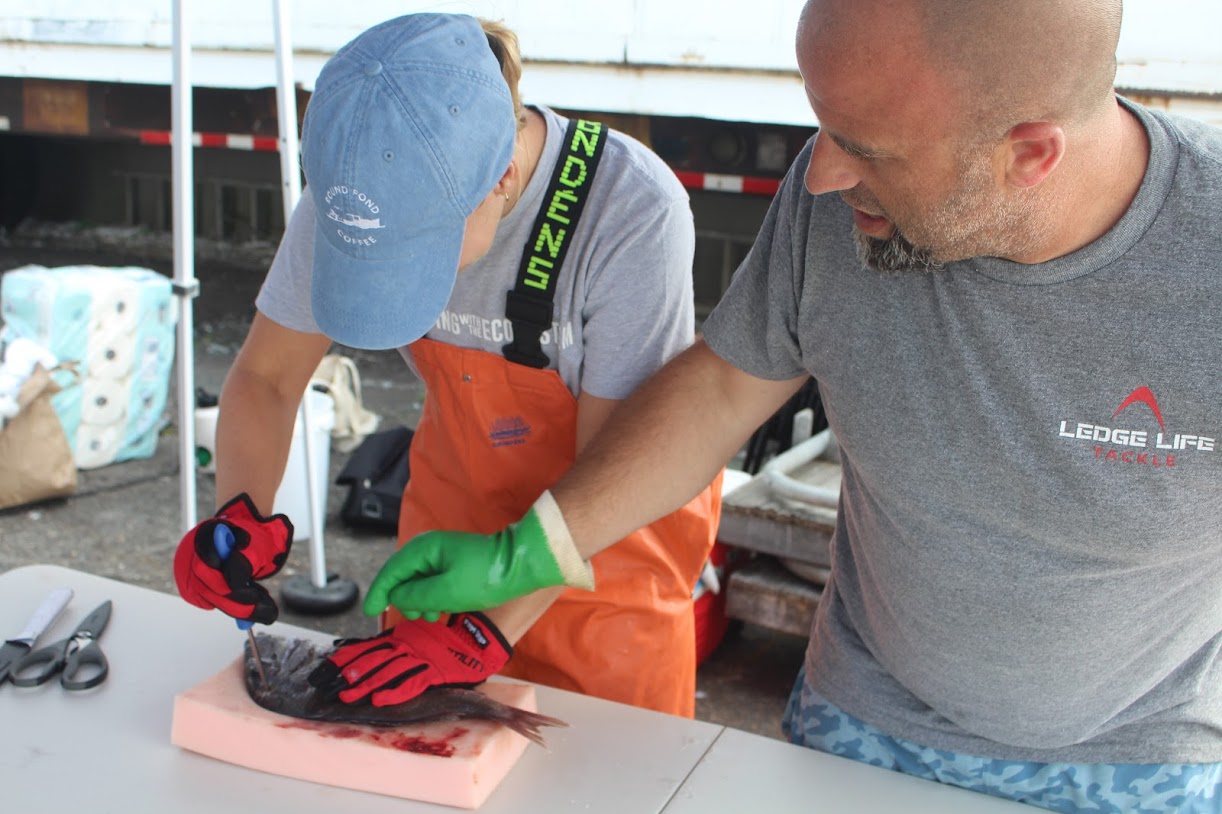Economic Power of Composting Underutilized
March 23, 2016
PROVIDENCE — Healthy soil is the basis for food production. Soil also stores and filters water, improving a community’s resilience to floods and droughts. But we’ve been abusing it for centuries, and now it needs some help. One way to do that is to make better use of our resources.

“We need to redefine food scrap as a resource,” Rich Pederson, steward of Southside Community Land Trust’s City Farm, said during a workshop at the recent Rhode Island Compost Conference & Trade Show held at Rhode Island College. “We need to look at food scrap as an opportunity to use an untapped resource for personal gain.”
The Seattle native, who is entering his 15th growing season as City Farm’s steward, composts at the farm and at his Providence home. He told those who attended the March 10 workshop about urban composting that 40 percent of food purchased in the United States annually is landfilled or incinerated.
Pederson said we should be using that wasted resource — besides to feed people — to rebuild depleted soils. “You’re essentially making gold from trash,” he said.
He said he uses the same formula for both his backyard compost pile and the composting operation he manages at his three-quarters-of-an-acre farm on the city’s South Side: one part nitrogen (food scrap) and three parts carbon (leaves, yard waste, newspaper, cardboard).
City Farm composts about 25,000 tons of organic material annually, according to Pederson. He uses food waste collected and delivered to City Farm by ecoRI Earth, leaves, stable manure, the bedding and manure from the farm’s six chickens, and coffee grounds from White Electric and New Harvest to create what he calls “black gold.”
Besides helping rejuvenate mistreated soils, composting, especially in an urban setting, also builds resourcefulness and frugality, according to Pederson. He noted that City’s Farms three compost bins were made from discarded wood pallets. He reused pieces of an old cedar fence to build his own backyard compost bin.
Pederson calls “quick compost” a fallacy. “Compost is like good wine,” he said. “There’s no reason to rush it. Let it age for about a year.”
He said he would like to see Rhode Island become a nationwide leader in composting, saying the statewide collection of organic material could be the Ocean State’s newest “manufacturing product.”
“We need to build soil fertility to grow healthy food and healthier communities,” Pederson said. “The economic opportunity afforded by composting is underused.”
Categories
Join the Discussion
View CommentsYour support keeps our reporters on the environmental beat.
Reader support is at the core of our nonprofit news model. Together, we can keep the environment in the headlines.
We use cookies to improve your experience and deliver personalized content. View Cookie Settings



